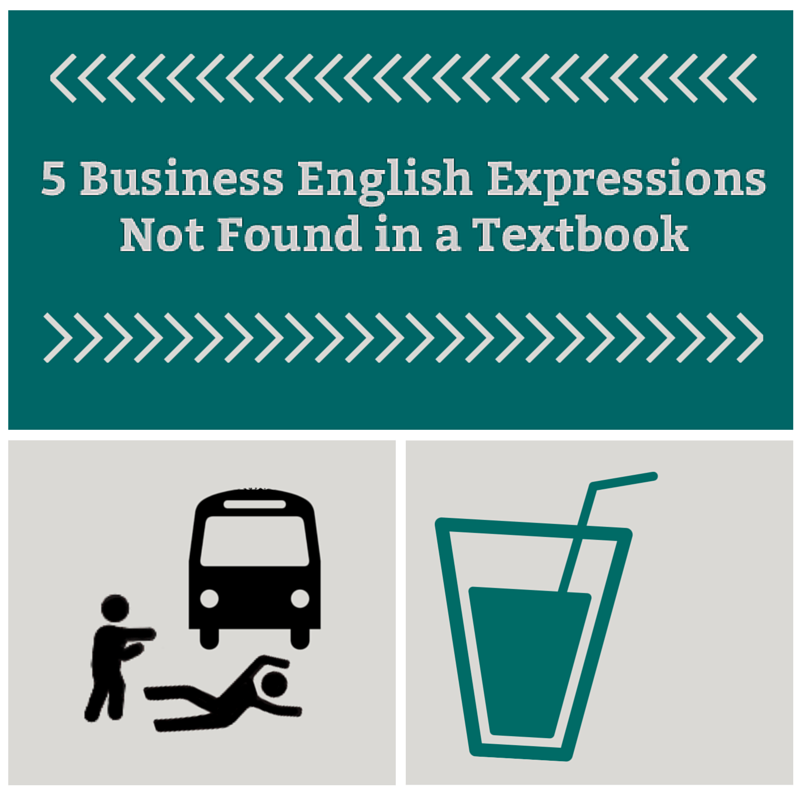1. Throw someone under the bus:
To blame, betray or tattle on someone.
I was taken aback when I first heard this one. Maybe because I was afraid of falling under the wheels of the proverbial bus. It sounds much worse than it is, but regardless if you’re the one under the bus, it will leave tread marks on your face!
Example: I made a mistake with my client’s file and before I had a chance to fix it, Elliott threw me under the bus and told my supervisor. Now I’m in trouble with my supervisor and have to work twice as hard to prove myself again.
2. Drink the kool-aid:
To do something or support something because everyone else (especially those in superior positions) is doing it.
The history behind this one is quite dark. You can read more about it here if you’re interested. I prefer to think of it as the punchbowl that only certain people have access to. In order to gain access to the kool-aid, you have to pledge your allegiance to a certain team.
Example: After the directors decided to implement new policies with a harsh impact on the workers, most people got upset but a few coworkers drank the kool-aid and supported the directors’ decisions without question.
3. Pass the buck:
To not do something because it’s not part of your job description; the opposite of “going above and beyond” or “going the extra mile;” passing something on to someone else or another department instead of researching and digging deeper to find a solution.
This is so typical when dealing with customer service. After you spend so long waiting for someone to help you, then explaining the details of your question or problem, you inevitably get transferred to someone else where you have to start the whole process over again. It seems like the associates are more concerned with answering as many calls as possible instead of helping the client, which is really what they’re in business for.
Example: Whenever clients ask Charlie for help beyond the basics of his job description, he always passes the buck and transfers them to someone else to help them, even if he could have done it.
4. Dodge the bullet:
To avoid a serious problem; to keep your job after a reorganization, round of firings or layoffs.
Although a bit morbid, this expression provides a visualization that you can imagine right away, except for with pink slips rather than bullets. The feeling it can leave behind is akin to the ‘survivor’ effect; people sad for losing their daily companions and knowing that those that were let go are now facing one of life’s most stressful events.
Example: After the company restructured, a lot of my coworkers lost their jobs but I dodged the bullet and am still here.
5. The left hand doesn't know what the right is doing:
When doing business with an organization, many times the departments don’t communicate well and ask you for information that you’ve already submitted.
This is most common with large organizations and especially large organizations working with each other (i.e.; governments and banks) for the same consumer. It’s somewhat like the macro-version of “passing the buck”, but rather than it being individuals, it’s a systemic problem due to company-wide inefficiencies and lack of communication and/or coordination.
Example: After submitting all the paperwork multiple times, I still can’t access my account because they say I haven’t submitted the paperwork. They’re so cumbersome to deal with, it’s like the left hand doesn’t know what the right is doing.
Have you got any good anecdotes of these expressions in use? Let me know in the comments!
References:
Dictionary of Unfamiliar Words by Diagram Group. S.v. "pass the buck." Accessed January 21, 2016. http://www.thefreedictionary.com/pass+the+buck
Dictionary.com. The American Heritage® Dictionary of Idioms by Christine Ammer. Houghton Mifflin Company. “left hand doesn't know what the right hand is doing, the.” Accessed January 20, 2016. http://dictionary.reference.com/browse/left hand doesn't know what the right hand is doing, the
Forbes. “Drinking the Kool-Aid – In Photos – Most Annoying Business Jargon.” Published January 26, 2012. http://www.forbes.com/pictures/ekij45gdh/drinking-the-kool-aid/#content
Higgins, Chris. “The Jonestown Massacre: The Terrifying Origin of ‘Drinking the Kool-Aid.’ ” Mental Floss, Published November 8, 2012.
http://mentalfloss.com/article/13015/jonestown-massacre-terrifying-origin-drinking-kool-aid
McGraw-Hill Dictionary of American Idioms and Phrasal Verbs. S.v. "go the extra mile." Accessed January 21, 2016. http://idioms.thefreedictionary.com/go+the+extra+mile
Wiktionary the Free Dictionary. “above and beyond.” Last modified January 18, 2016. https://en.wiktionary.org/wiki/above_and_beyond
Wiktionary the Free Dictionary. “dodge a bullet.” Last modified January 19, 2016. https://en.wiktionary.org/wiki/dodge_a_bullet
Wiktionary the Free Dictionary. “throw under the bus – Wiktionary.” Last modified January 19, 2016. https://en.wiktionary.org/wiki/throw_under_the_bus




